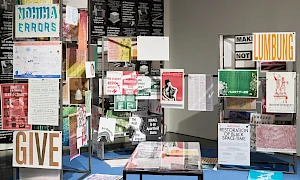We Have Been Here Forever. Palestinian Poets Write Back
As part of the publishing strand ‘Towards Collective Study in Times of Emergency’ translator and writer Rana Issa compiles and introduces a selection of Palestinian poems. Issa foregrounds poets living and working in Palestine, moving accross the contexts of the 1940s and the time of the nakba to the 1970s and those writing in Gaza today.
From the earliest days of their dispossession, Palestinians have recorded their plight in poetry. There is a long tradition for this amongst Arabs who, since long before the birth of Islam, have considered poetry a diwan, a historical record. Unlike historiography, which Arabs are also renowned for, poetry is a mnemonic device that penetrates people’s consciousness, registers and shapes their affective state. Palestinian poets are also Arab poets and they find inspiration in a poetic tradition that is both geographically expansive and far pre-dates the Zionist project. Palestinians write a poetry of resistance, enshrining poetry as both a diwan and a protest against oppression. They learn and memorize poetry as well as produce it. Through poetry, Palestinians cultivate their political imagination and preserve their collective spirit.
The poems I have selected speak to these aspects of Palestinian poetry, directly responding to the ongoing annihilation of Palestinians. The selection is not meant to be an authoritative representation of Palestinian poetry or the vast legacy of writing about Palestine by non-Palestinians. Indeed important voices in the diaspora, and great non-Palestinian radical poets writing about Palestine in Arabic and other languages, are not included here. I instead decided to feature poets who have written from Palestine as a modest gesture of solidarity to historic, and ongoing, land struggles. The exception is the work of Kamal Nasser, who was an exile in Beirut when the Israelis assassinated him in 1973. Through Nasser, I gesture to the need for historical depth when we speak about Palestine. Nasser belongs to the legacy of Palestinian poets targeted through imprisonment and assassination by the colonizers (British as well as Israelis) that goes as far back as Nuh Ibrahim (a poet who was imprisoned several times by the British for his poetry, and who was killed in battle in 1938), but includes famous poets like Mahmud Darwish, Tawfiq Zayyad, Nasser Abou Srour, Dareen Tatour (included here) and many others. Poets, too, sometimes die in battle. Such was the fate of Abdel Rahim Mahmoud who died during the year of the nakba, but other poets also die as civilian casualties, victims of Israeli violence that is particularly committed to striking civilians and civilian infrastructure. During this war we mourned the loss of Gazan poet Heba Abu Nada who was killed in October. I include a poem by Abu Nada that questions the dominant Palestinian idea that poetry is an effective tool of struggle. We also mourn thirteen poets that have died in Gaza since the beginning of this war and acknowledge other poets we have undoubtedly lost but that are not yet accounted for. They were targeted not because they were poets but simply because they were Gazans.

Where is the rest of me? Shattered in pieces.
Mosab Abu Toha
Heba Abu Nada
Trans: Huda Fakhreddin
I learned about the work of Heba Abu Nada through the excellent translations of my esteemed colleague and poetry scholar, Associate Professor of Arabic Literature, at the University of Pennsylvania, Huda Fakhreddine. Huda embarked on translating several Palestinian poets during this war, and Heba’s work was prominently featured. Heba was an award winning novelist and poet. Her novel, Oxygen is not for the Dead is yet to be translated. Learning about this talented author on the occasion of her murder by an airstrike in Khan Yunis on 20 Oct, 2023 is piercingly painful. She died five days before my daughter’s birthday. Since the genocide began, we did not celebrate any occasion, for the grief is so overwhelming, and the massacre maddeningly ongoing, for any meaningful glimpse of happiness. Woe to us who learn about our poets on the occasion of their death by genocide. How do we recover from such terrible loss? Of the many great poems that Fakhreddine has translated, I decided to include this one to challenge a complacent reader who might be content with protesting genocide through the radical potential of poetry. Poetry is not effective as a tool for resistance in and of itself. Its revolutionary potential derives its energy from the streets and the courage of the oppressed.
Pull Yourself Together
O! How alone we are!
All the others have won their wars
and you were left in your mud,
barren.
Darwish, don’t you know?
No poetry will return to the lonely
what was lost, what was
stolen.
How alone we are!
This is another age of ignorance. Cursed are those
who divided us in war and marched in your funeral
as one.
How alone we are!
This earth is an open market,
and your great countries have been auctioned away,
gone!
How alone we are!
This is an age of insolence,
and no one will stand by our side,
Never.
O! How alone we are!
Wipe away your poems, old and new,
and all these tears. And you, O Palestine,
pull yourself
Najwan Darwish
Trans: Kareem Abou Zeid
I am grateful for my more than decade long friendship with Jerusalem poet Najwan Darwish. Najwan was one of a handful of Palestinian artists that I became good friends with once I decided to leave Lebanon and go into exile in Norway. Beyond our continuous bloodshed, one of the main features of being Palestinian has been the prohibition on our movement and our ability to meet and get to know one another. This prohibition affects us at a social, cultural as well as personal levels. As the child of a Palestinian refugee on my mother’s side, I have often been struck by the sense of being orphaned that I grew up with in the absence of Palestinian family members who have been been dispersed, incarcerated, separated, rendered insane, as well as murdered before I was born.
In my exile, the chance to meet other Palestinians became invaluable to me. When I met him, Najwan was an emerging poet. Today, he is one of Palestine’s most prominent literary voices. In addition to authoring several books of award winning poetry that have been translated into more than twenty languages, he serves as a cultural editor of al-Arabi al-Jadid, as well as an active producer of Arab and Palestinian cultural festivals and artistic platforms, with a committed interest in emerging voices from Palestine. There are many translators of his work, most prominent among them is award winning Egyptian- American translator Kareem Abou Zeid who has worked with Najwan on several books of poetry. This poem which Kareem beautifully renders into English, captures the quintessential Palestinian fear of annihilation that has become like a shadow to us. Najwan wrote this poem around twelve years ago, long before the genocide we are now witnessing in Gaza. I chose it for how it speaks about being a Palestinian in Jerusalem and the West Bank.
Phobia
I’ll be banished from the city
Before night falls: They’ll claim
I neglected to pay for the air
I’ll be banished from the city
Before the advent of evening: They’ll claim
I paid no rent for the sun
Nor any fees for the clouds
I’ll be banished from the city
Before the sun rises: They’ll say
I gave night grief
And failed to lift my praises to the stars
I’ll be banished from the city
Before I’ve even left the womb
Because all I did for seven months
Was write poems and wait to be
I’ll be banished from being
Because I’m partial to the void
I’ll be banished from the void
For my suspect ties to being
I’ll be banished from both being and the void
Because I was born of becoming
I’ll be banished
Sheikha Hlewa
Trans: Fady Joudah
Palestinians are proud folk. During this war, I often found myself pained by individuals (children as well as adults) in Gaza who feel indignant about being captured on video in a state of deprivation. They do not want to be remembered like this and tell the person behind the camera who nevertheless does not respect their privacy and uploads their protests onto social media. The person behind the camera is probably motivated by the injustice of such destitution and wishes to narrate such injustice in the hope that it might move the monsters to become more humane. As my heart burns with what my eyes are witnessing and ears are hearing I contemplate how violated we have become, how we no longer have the power to shield our immiseration from turning into a spectacle. The pain of overexposing our weakened state to the world led me to choose this poem by bedouin Palestinian poet, novelist and short story writer Sheikha Hlewa. To mock the nakba and master the pain it persistently generates in us as Hlewa does here is to take a jab at the organizing concept of being Palestinian. This irreverence is a crucial impulse that must be preserved so as not to turn the pillars of our narrative into dogma.
Hlewa is an award winning writer living in Haifa, and little known outside of Palestine. This is often the fate of Palestinian writers writing in Arabic and living within the 1948 borders of the settler state. Like my experience with my own family, the Arab literary scene has been historically cut off from Palestinians who never left the homeland. I first encountered this poem through the translation here by award winning Palestinian-American poet, translator, and medical doctor Fady Joudah. In addition to being a most sensitive Palestinian poet writing in English, Joudah is a committed curator and translator of Palestinian and Syrian poets, and his work has introduced me to many writers that I would consequently begin to read and to follow.
Nakba
My mother is three years younger than Nakba.
But she doesn’t believe in great powers.
Twice a day she brings God down from his throne
then reconciles with him
through the mediation of the best
recorded Quranic recitations.
And she can’t bear meek women.
She never once mentioned Nakba.
Had Nakba been her neighbor,
my mom would’ve shamelessly chided her:
“I’m sick of the clothes on my back.”
And had Nakba been her older sister,
she would’ve courted her with a dish
of khubaizeh, but if her sister whined
too much, my mom would tell her: “Enough.
You’re boring holes in my brain. Maybe
we shouldn’t visit for a while?”
And had Nakba been an old friend,
my mom would tolerate her idiocy
until she died, then imprison her in a young picture
up on the wall of the departed,
a kind of cleansing ritual before she’d sit to watch
dubbed Turkish soap operas.
And had Nakba been an elderly Jewish woman
that my mom had to care for on Sabbath,
my mom would teasingly tell her
in cute Hebrew: “You hussy,
you still got a feel for it, don’t you?”
And had Nakba been younger than my mom,
she’d spit in her face and say:
“Rein in your kids, get’em inside,
you drifter.”
—Haifa
Mosab Abu Toha
I learnt about Gazan poet Mosab Abu Toha and about the Edward Said Library in Gaza through my friend, the American poet and translator Marilyn Hacker. But it took a trip to New York in the beginning of this year for me to encounter his poetry through the book Things You May Find Hidden in my Ear (City Lights Publishers, 2022) at Unnamable bookstore in Brooklyn. I bought the book immediately, despite my skepticism for how poetry addressing war is often thrust into the limelight for commercial reasons. It turned out to be one of the most gratifying poetic experiences I have had for some time. The poet writes in English and has studied in prominent universities in the US. He lived in Gaza until this war, when he was kidnapped by the Israeli Occupying Forces, released through international pressure and subequently became a refugee with his family in Egypt. I read poems from this book to my partner and gifted my copy to a dear author friend in New York. I bought a new copy to take home with me to Oslo to read this beautiful collection with my daughter. I chose this poem from as part of the selection to honour all poets like Audrey Lorde who speak up for and write about Palestine. Some years ago, I translated the poem by Lorde that Abu Toha riffs off of into Arabic, on the occasion of the assassination of Lebanese intellectual and publisher Lokman Slim by Iran-backed Hizbullah operatives in the South of Lebanon. Abu Toha’s reference to this poem questions Lorde’s famous ending and adds valuable insight on the approach to censorship. As he suggests, we have not been silent in the face of censorship, we have been silenced, for those who are complicit with our censoring have given up their ability to listen.
A Litany for One Land
After Audre Lorde
For those living on the other side,
we can see you, we can see the rain
when it pours on your (our) fields, on your (our) valleys,
and when it slides down the roofs of your “modern” houses
(built atop our homes).
Can you take off your sunglasses and look at us here,
see how the rain has flooded our streets,
how the children’s umbrellas have been pierced
by a prickly downpour on their way to school?
The trees you see have been watered with our tears.
They bear no fruit.
The red roses take their color from our blood.
They smell of death.
The river that separates us from you is just
a mirage you created when you expelled us.
IT IS ONE LAND!
For those who are standing on the other side
shooting at us, spitting on us,
how long can you stand there, fenced by hate?
Are you going to keep your black glasses on until
you’re unable to put them down?
Soon we won’t be here for you to watch.
It won’t matter if you blink your eyes or not,
if you can stand or not.
You won’t cross that river
to take more lands,
because you will vanish into your mirage.
You can’t build a new colony on our graves.
And when we die,
our bones will continue to grow,
to reach and intertwine with the roots of the olive
and orange trees, to bathe in the sweet Yaffa sea.
One day, we will be born again when you’re not there.
Because this lands knows us. She is our mother.
When we die, we’re just resting in her womb
until the darkness is cleared.
For those who are NOT here anymore,
We have been here forever.
We have been speaking but you
never cared to listen.
Kamal Nasser
My translation
Kamal Nasser used to say that he was too scared to carry arms in his struggle for Palestine. The pen was his preferred weapon. Born in 1924 in Gaza, and growing up in Beir Zeit close to Ramallah, Nasser graduated from the American University of Beirut and initially worked as an Arabic teacher and later as a lawyer, before he dedicated himself to a life of journalism and political activism. He was elected into the PLO Executive Committee and headed its information office, until he became the PLO spokesperson in 1969. Nasser was martyred on the 10th of April 1973, on Verdun Street in Beirut in a Mossad operation led by Ehud Barak, who became Israel’s Prime Minister in 1999. In this poem, Nasser depicts the harrowing silence following a genocidal storm in an unnamed city. Unusually for him, he dated the poem. This led me to inquire about whether any lesser known massacre corresponded with the date. I found none. Was he referring to what he witnessed in massacre and annihalation of Palestinian cities in 1948? Or was he seeing into the future and our present, of how the city of his birth was to be rendered a city of the dead?
The Green Light
I walk through the city of the dead
trampling over my shadow
I beg the slain ruins for life
in my land and my people.
This silence, this slumber terrifies me
how the pale casts its long shadow, it frightens me, as if its all that remains
of the corpses
embracing me
coiling around me…should I walk in the city of the dead
⬳⬳⬳
No
I did not come to bring life,
to my city, and I did not come to re-member the fragments.
The big game collapsed
in the playing fields of the endgame
Shame offered prayers at the funeral.
The banquet of conflict is whored
made wanton by the propagandists
and the patrons.
Feeble she stood erect…bringing crumbs
Crumbs will not satisfy
Crumbs will not satisfy
⬳⬳⬳
When I walk in the city of the dead
trampling over my shadow
I beg the slain ruins for life
in my land and my people
I find everything. Died.
⬳⬳⬳
And when I walked through the city of the dead
desolation killing me
my I wounding me
proud impotence marching away from survival with me in procession,
I caught a specter oblitarating the emptiness,
creeping like light on the world.
I found myself traversing the vast expanse
walking behind it
I found myself crossing through life
Walking like faith itself, in the city of the dead…
The torment of existence surging through me
I glimpsed a child…one year old.
15/10/1965
Dareen Tatour
Trans: Tariq al Haydar
Nazareth born Dareen Tatour was arrested on October 11, 2015 for writing this poem and charged with incitement to violence and supporting a terrorist organization. For three years she moved between administrative detention and house arrest, until she was finally released due to international pressure. The Israeli prosecution absurdly built its case (replete with a slew of literature professors) to discredit Tatour as a poet. Was this trial what prompted the Palestinian-American Noor Hindi to write her famous poem “Fuck Your Lecture on Craft, My People Are Dying.” The settler state, like many other settler administrations and colonial powers are petrified of a people’s right to defend themselves. To acknowledge this right is tantamount to acknowledging the conditions that lead a people to fight back. Obviously, Israeli society is too radicalized today for such an act of recognition. This leaves Palestinians with no choice than to continue to resist, for in this self endangering act, we return to ourselves. Through resistance we become Palestinians, a people that reject the structures of oppression that victimizes us. Tariq al-Haydar, a poet and artist himselft, translated this poem in solidarity with her plight, in a gesture of literary activism committed to rescuing one of our own from the grip of the aggressors. You can listen to the poem in the voice of Tatour here.
Resist, My People, Resist Them
Resist, my people, resist them.
In Jerusalem, I dressed my wounds and breathed my sorrows
And carried the soul in my palm
For an Arab Palestine.
I will not succumb to the “peaceful solution,”
Never lower my flags
Until I evict them from my land.
I cast them aside for a coming time.
Resist, my people, resist them.
Resist the settler’s robbery
And follow the caravan of martyrs.
Shred the disgraceful constitution
Which imposed degradation and humiliation
And deterred us from restoring justice.
They burned blameless children;
As for Hadil, they sniped her in public,
Killed her in broad daylight.
Resist, my people, resist them.
Resist the colonialist’s onslaught.
Pay no mind to his agents among us
Who chain us with the peaceful illusion.
Do not fear doubtful tongues;
The truth in your heart is stronger,
As long as you resist in a land
That has lived through raids and victory.
So Ali called from his grave:
Resist, my rebellious people.
Write me as prose on the agarwood;
My remains have you as a response.
Resist, my people, resist them.
Resist, my people, resist them.
The views and opinions published here mirror the principles of academic freedom and do not necessarily reflect the views or positions of the L'Internationale confederation and its members.
Related activities
The Soils Project
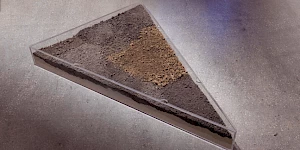
The Soils Project, is part of the eponymous, long term research initiative involving Tarrawara Museum of Art, Wurundjeri Country, Australia, the Van Abbemuseum in Eindhoven, Netherlands and Struggles for Sovereignty, a collective based in Yogyakarta, Indonesia. It works through specific and situated practices that consider soil, as both metaphor and matter. A further iteration of the project will open at the Van Abbemuseum in May - September 2024 as part of Museum of the Commons.
The Soils Project has been in development since 2018. An international collaboration between three organisations, and several artists, curators, writers and activists, the project has manifested in various iterations over several years including a three-part public webinar series titled The Soils Project: groundwork, and a two-week workshop, titled The Soils Project: On Country, for participating curators and artists. With a curatorium comprising arts workers from TarraWarra Museum of Art, the Van Abbemuseum, and Struggles for Sovereignty, the project’s approach seeks and facilitates opportunities to listen to diverse voices and perspectives around notions of caring for land, soil and sovereign territories.
Developed from this journey, The Soils Project’s forthcoming exhibition will embrace the deep histories of each participant’s location, examining the multiplicity of landscapes and environments, and the impact of colonisations and global industries on cultural heritage, land management and traditional knowledges.
Kyiv Biennial 2023
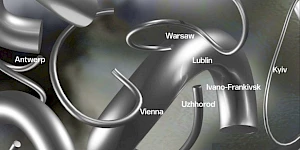
L’Internationale Confederation is a proud partner of this year’s edition of Kyiv Biennial.
Where are the Oases?
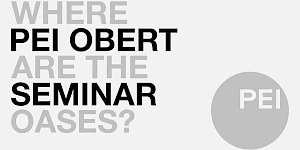
PEI OBERT seminar
with Kader Attia, Elvira Dyangani Ose, Max Jorge Hinderer Cruz, Emily Jacir, Achille Mbembe, Sarah Nuttall and Françoise Vergès
An oasis is the potential for life in an adverse environment.
Anti-imperialism in the 20th century and anti-imperialism today: similarities and differences
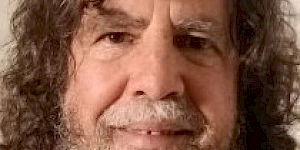
PEI OBERT seminar
Lecture by Ramón Grosfoguel
In 1956, countries that were fighting colonialism by freeing themselves from both capitalism and communism dreamed of a third path, one that did not align with or bend to the politics dictated by Washington or Moscow. They held their first conference in Bandung, Indonesia.
Cinema as Assembly
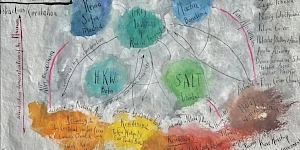
Cinema as Assembly investigates cinema as a space of social gathering and political engagement that prefigures and enacts forms of living beyond colonial capitalism.
Maria Lugones Decolonial Summer School
Recalling Earth: Decoloniality and Demodernity
Course Directors: Prof. Walter Mignolo & Dr. Rolando Vázquez
Recalling Earth and learning worlds and worlds-making will be the topic of chapter 14th of the María Lugones Summer School that will take place at the Van Abbemuseum in Eindhoven.
Archive of the Conceptual Art of Odesa in the 1980s
The research project turns to the beginning of 1980s, when conceptual art circle emerged in Odesa, Ukraine. Artists worked independently and in collaborations creating the first examples of performances, paradoxical objects and drawings.
Summer School: Our Many Easts
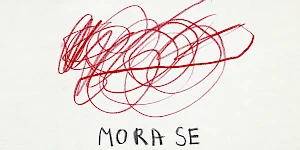
Our Many Easts summer school is organised by Moderna galerija in Ljubljana in partnership with ZRC SAZU (the Research Centre of the Slovenian Academy of Sciences and Arts) as part of the L’Internationale project Museum of the Commons.
Open Call – Summer School: Our Many Easts

Our Many Easts summer school takes place in Ljubljana 24–30 August and the application deadline is 15 March. Courses will be held in English and cover topics such as the legacy of the Eastern European avant-gardes, archives as tools of emancipation, the new “non-aligned” networks, art in times of conflict and war, ecology and the environment.
Song for Many Movements: Scenes of Collective Creation
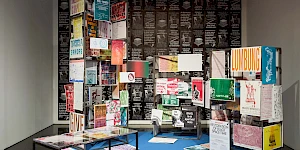
An ephemeral experiment in which the ground floor of MACBA becomes a stage for encounters, conversations and shared listening.
Related contributions
Editorial: Towards Collective Study in Times of Emergency
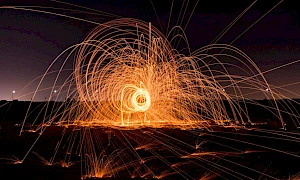
…and the Earth along. Tales about the making, remaking and unmaking of the world.
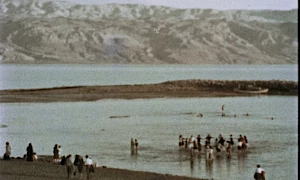
The Kitchen, an Introduction to Subversive Film with Nick Aikens, Reem Shilleh and Mohanad Yaqubi
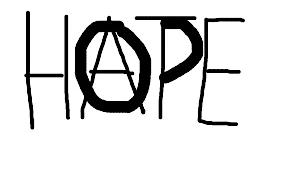
The Repressive Tendency within the European Public Sphere
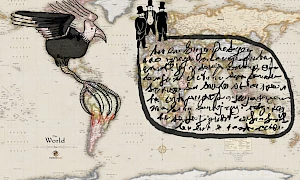
Troubles with the East(s)
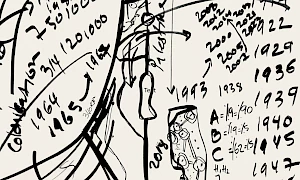
Right now, today, we must say that Palestine is the centre of the world
Body Counts, Balancing Acts and the Performativity of Statements
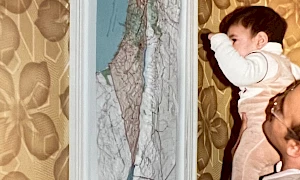
Until Liberation I: Learning Palestine
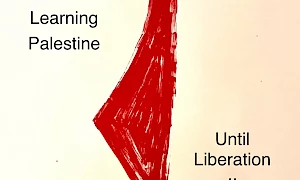
Until Liberation II: Learning Palestine
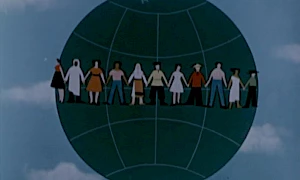
The Veil of Peace
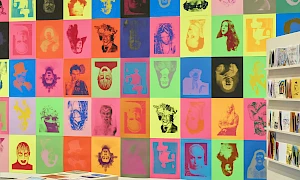
Song for Many Movements. Opening Performance Live on Radio Alhara
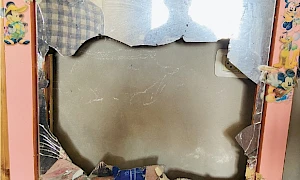
We Have Been Here Forever. Palestinian Poets Write Back
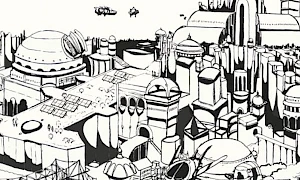
Indra's Web
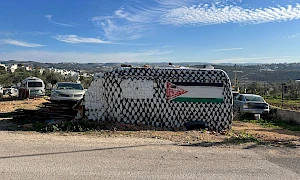
Diary of a Crossing
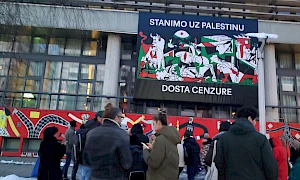
The Silence Has Been Unfolding For Too Long
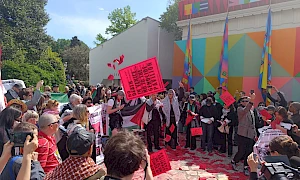
One Day, Freedom Will Be
